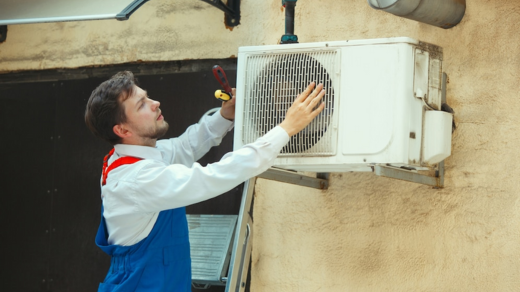A well-functioning HVAC system is essential for maintaining a comfortable environment in your home or business. However, over time, even the most reliable systems show signs of wear and tear. Understanding these signs can help you decide whether it’s time for an upgrade. Upgrading an outdated HVAC system can improve efficiency, save money, and enhance overall comfort. Below are some key indicators to consider, along with practical advice on how to address these issues effectively.
Aging Systems and Diminished Efficiency
A clear sign that your HVAC system may need replacing is its age. Over time, heating and cooling systems lose efficiency, resulting in higher energy bills and uneven performance. Frequent breakdowns can indicate underlying issues that simple repairs won’t resolve. While common maintenance efforts like AC repair can handle minor problems, constant fixes for an aging system can quickly become costly. Upgrading to a modern, energy-efficient system not only reduces maintenance needs but also offers significant long-term savings.
Struggles to Maintain Consistent Temperature
An efficient HVAC system should maintain a consistent and comfortable temperature throughout your space. If you notice uneven heating or cooling, or if your system struggles to keep up during extreme weather, it could be a sign that your system is underperforming. While blocked vents or outdated filters may sometimes explain temperature inconsistencies, these can also indicate a system that is operating beyond its capacity. When issues persist despite regular tuning, it may be time to consider an upgrade. Many modern systems offer enhanced capabilities to ensure your space remains consistently comfortable at all times.
Choosing Between Repairs and Replacement
Deciding whether to repair or replace your HVAC system requires careful consideration of various factors. The age of your system, the frequency of required repairs, and overall performance levels should guide your choice. Services like Climate Masters Inc can provide assessments on whether investing in repairs makes sense compared to a full system replacement. When system inefficiencies persist even after professional repairs, an upgrade may be the more cost-effective solution. Remember, replacement involves upfront investment but often pays off long term with higher energy efficiency and reduced maintenance costs.
Escalating Energy Bills
A sudden spike in energy bills often signals that your HVAC system is no longer running efficiently. Worn-out components force your system to work harder, consuming more energy than necessary. Inspecting and cleaning filters and other components may temporarily improve efficiency, but these fixes are often short-lived in older systems. Upgrading to a newer, energy-efficient HVAC unit can significantly reduce energy consumption. Additionally, modern systems are designed with advanced technology to lower operational costs while providing better performance.
Excessive Noise or Unpleasant Odors
Unusual noises or persistent odors coming from your HVAC system should not be ignored. Rattling or banging sounds may suggest loose parts, while musty smells could indicate mold or mildew in the system. These issues can sometimes be addressed by professional cleaning or part replacement. However, when they become recurring problems, they may point to a system that is worn out and in need of upgrading. An updated system not only operates more quietly but also keeps your indoor air quality fresh and clean.
Trusting Professional Services
When dealing with HVAC issues, partnering with a trusted professional ensures quality and peace of mind. Trained experts can assess your specific needs and recommend the best course of action. Routine inspections and maintenance by a professional can also prolong the life of your system and address issues before they escalate. Whether it’s fixing a minor issue or planning a complete system upgrade, professional guidance ensures your HVAC system operates efficiently. Always invest in reliable services to keep your heating and cooling solutions running smoothly.
Conclusion
Recognizing the signs of an aging or inefficient HVAC system is crucial for maintaining comfort and avoiding unnecessary costs. From aging equipment and frequent repairs to inconsistent temperature regulation and rising energy bills, these signs can signal the need for an upgrade. Evaluating whether repairs or a replacement offer a better solution involves considering factors such as cost-effectiveness and long-term benefits. For peace of mind, always trust professional HVAC services to guide your decisions. Upgrading your system when necessary ensures optimal comfort, efficiency, and overall performance for years to come.
